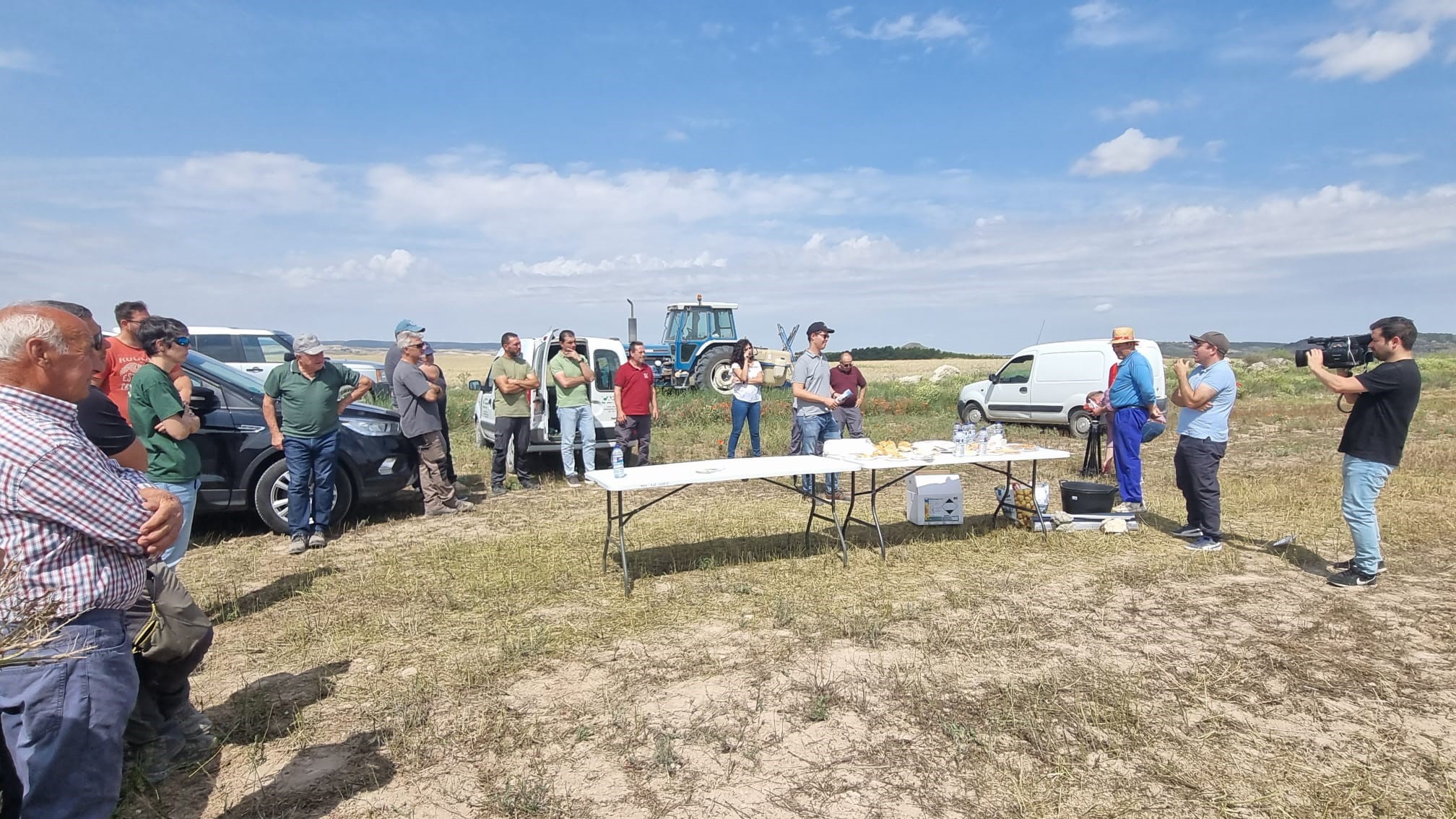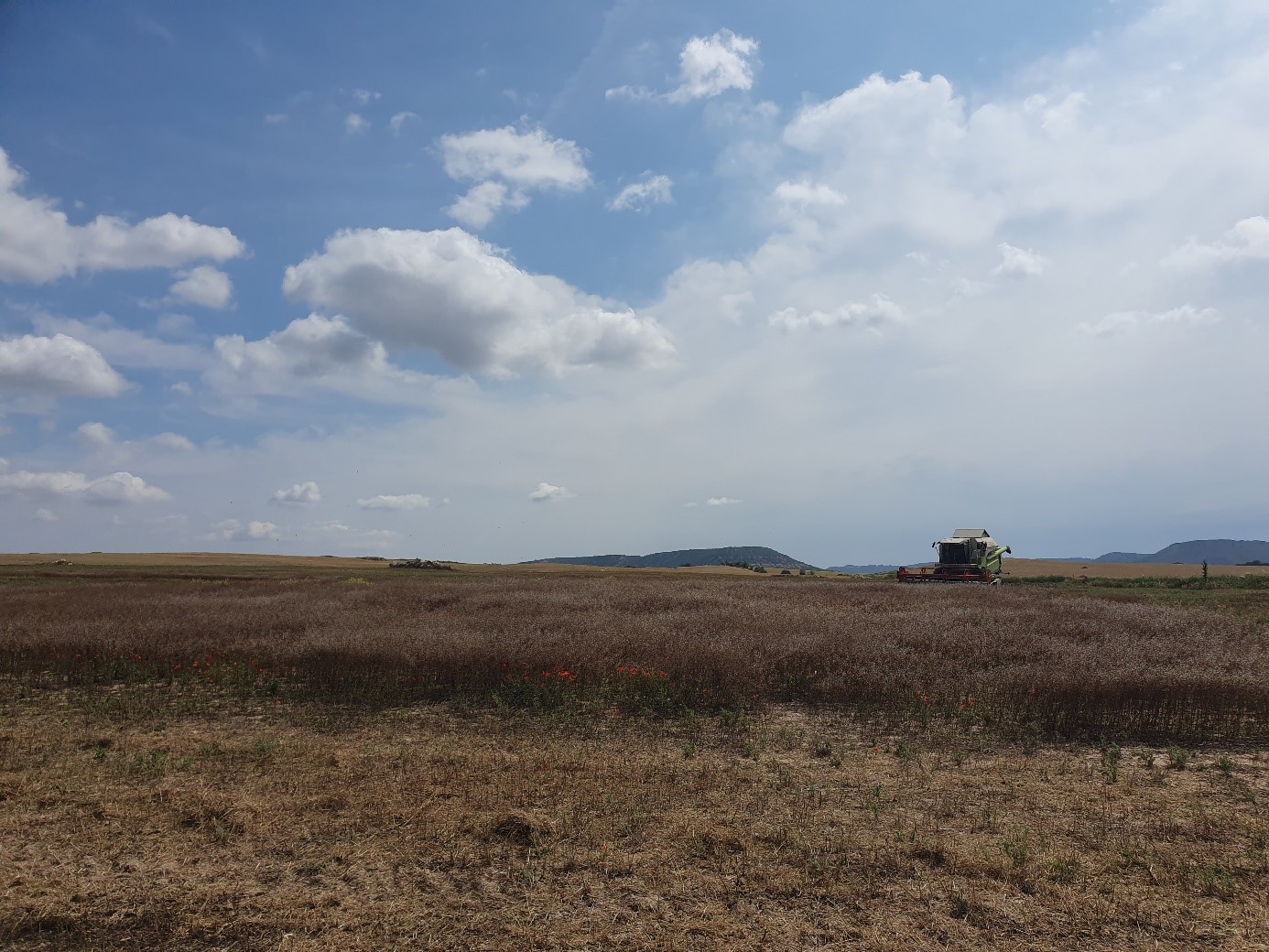In the face of climate change and its devastating impacts, finding sustainable and resilient agricultural practices has become more critical than ever. One such innovation that is gaining traction as an alternative to combat drought and promote sustainable farming practices is camelina. On 21 June, Cooperativas Agro-alimentarias de España (Spanish Co-ops) and Camelina Company (CCE) organized a field visit for members of the Alcamancha cooperative to learn about the potential of the camelina crop and its benefits for the agricultural sector.
The Alcamancha cooperative has been actively collaborating with the 4CE-MED project since 2020, through Cooperativas Agro-alimentarias de España, to promote more sustainable soil management practices and diversify farming activities with alternative crops. This partnership has allowed fifteen members of the cooperative to gain first-hand experience in camelina cultivation, learning about the necessary machinery adjustments for its successful harvest under the guidance of Camelina Company’s technical services.
The involvement of Cooperativas Agro-alimentarias de Castilla-La Mancha (CACLM) and Camelina Company (CCE) in the CARINA project has led to a presentation of the objectives and challenges of both projects. The CARINA project focuses on exploring the potential of camelina and Brassica carinata oil crops to produce bio-products that can be reintroduced into the same farms, achieving a circular economy and minimizing competition for land with food crops. Biopesticides, bioplastics, and biostimulants are some examples of the innovative products aimed at enhancing sustainability in agriculture.

Camelina Company (CCE) has been actively involved in optimizing camelina’s agronomic management, sharing guidelines for sowing and harvesting machinery adjustments. The company also showcased results from trials conducted within the 4CE-MED framework, comparing management practices like tillage and direct sowing, as well as different sowing methods (in-line vs. broadcast). The presentation also introduced a unique business model, where the company provides continuous support to farmers throughout the cultivation process, from sowing to harvesting, management, and marketing.
Conservation Agriculture practices have also been recognized as vital in promoting sustainability and moisture retention in arid soils. The Spanish Association for Conservation Agriculture Living Soils, AEAC.SV, emphasized the advantages of adopting direct sowing, including increased biodiversity and reduced input usage. These practices further complement the efforts to implement camelina in semi-arid marginal areas as a replacement for fallow land.
Looking ahead, an information day is planned for the beginning of October, where the AEAC.SV will present the results of their report on “Introduction of camelina in arid soils in Conservation Agriculture.” Additionally, Camelina Company will share insights from their trials conducted under the 4CE-MED project, and new strategies for optimizing camelina’s potential will be explored.
In conclusion, camelina emerges as a promising alternative to combat drought and improve sustainability in agriculture. Through collaborative efforts like those between Cooperativas Agro-alimentarias de España, Cooperativas Agro-alimentarias de Castilla-La Mancha, and Camelina Company, as well as projects like 4CE-MED and CARINA, the agricultural sector can pave the way towards a more resilient and environmentally friendly future. By adopting camelina and other innovative practices, farmers can diversify their crops, enhance soil management, and contribute to a sustainable circular economy in agriculture.

SUBSCRIBE TO A NEWSLETTER
Funded by the European Union. Views and opinions expressed are however those of the author(s) only and do not necessarily reflect those of the European Union or the European Research Executive Agency. Neither the European Union nor the granting authority can be held responsible for them.